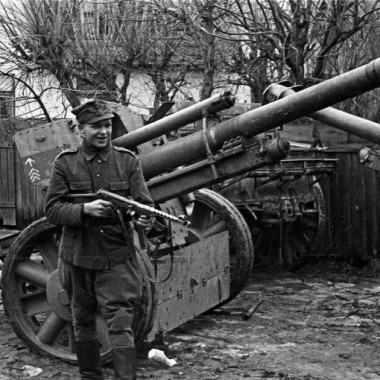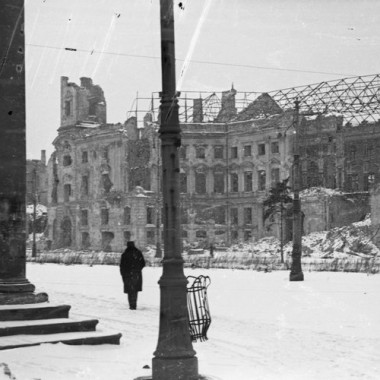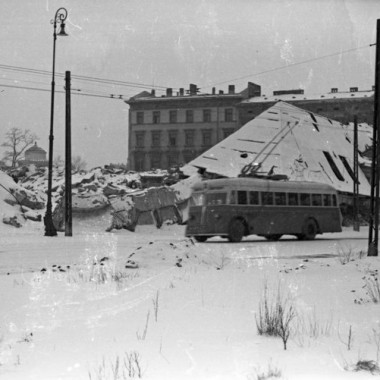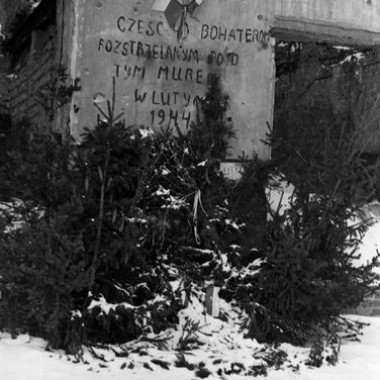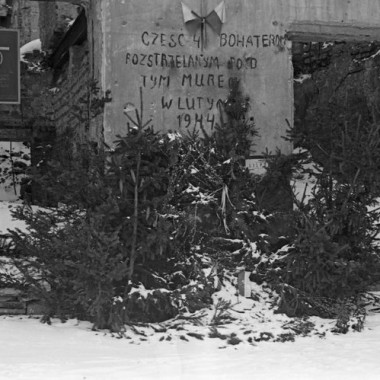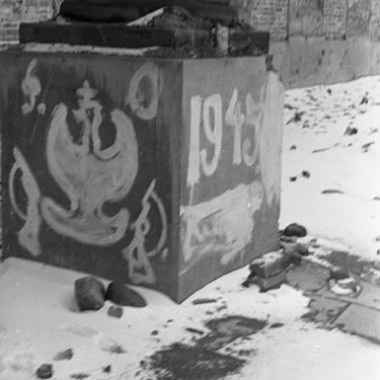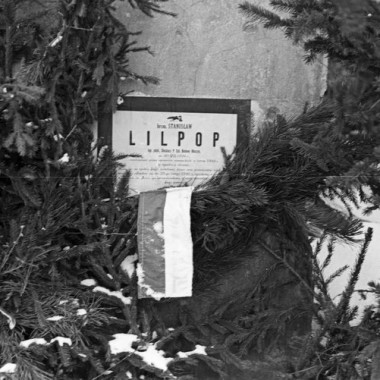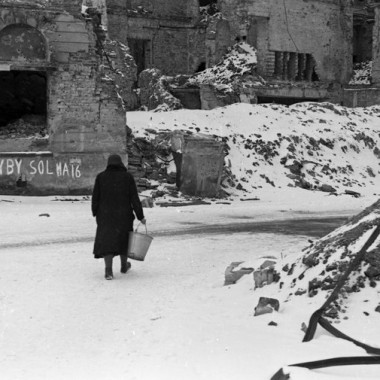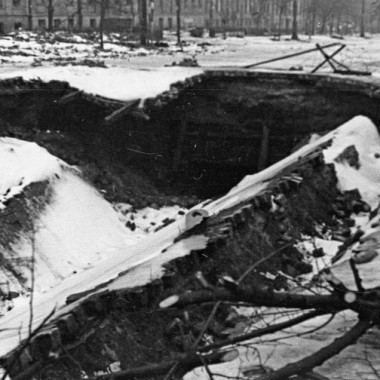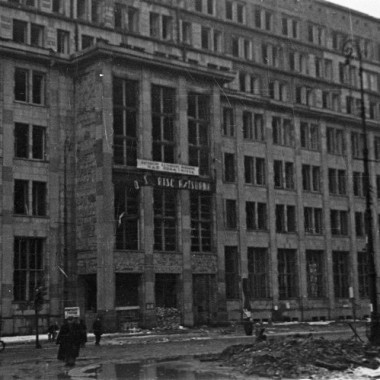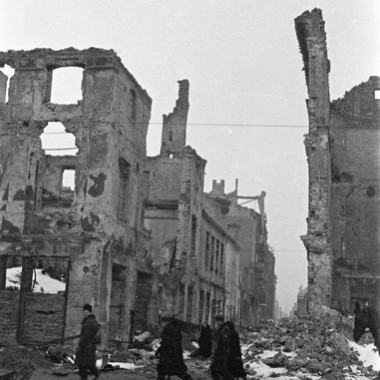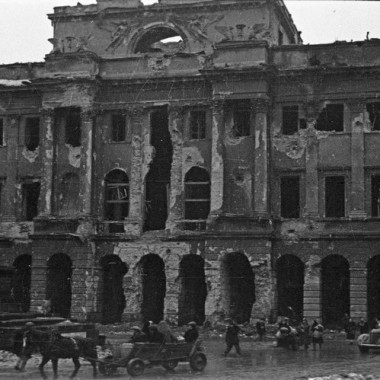Ryszard Witkowski was born in 1926 in Milanówek near Warsaw. His mother Felicja ran the only photo studio in Milanówek. Before the war, as a scout of the 197th Mazovian Scouting Troop, he attended model-making courses and built aircraft models. During the occupation, he studied at a vocational school and in 1942 he started working as an assistant mechanic, first at a Škoda factory and later, in 1943, at the machine tool factory "Pionier" in Warsaw. He joined the underground National Military Organisation (NOW) under the pseudonym "Romuald" in 1941, and after the NOW had been amalgamated with the Home Army, he was sworn in as a soldier of District VII "Obroża" of the Home Army's Warsaw Region under the pseudonym "Orliński". He distributed underground press, including Walka, Biuletyn Informacyjny, and Insurekcja. In 1944, he was involved in protecting Allied airdrops of weapons at the outpost "Solnica" near Grodzisk Mazowiecki. His mother and sister, Aniela, were arrested by the Gestapo under charges of involvement in the underground movement and were incarcerated at the Pawiak prison in September and October 1943. During the Warsaw Rising, the Witkowski family gave refuge to Jews who had escaped from Warsaw. They were: Józef Roman, an inmate of the Pawiak prison and an activist of the Jewish Bund organisation, for whom Ryszard arranged a false ID papers for the name of Grotte, and brothers Bronisław and Józef Miodowski, liberated by the insurgents from the "Gęsiówka" concentration camp. In 1993 the Witkowskis were decorated with the Righteous Among the Nations Medal. After the Rising, Ryszard Witkowski cooperated with the photographic section of the Government Delegation for Poland. In the autumn of 1945, Witkowski began studies at the Aviation Section of the Mechanical Department of the Hipolit Wawelberg & Stanisław Rotwand School of Engineering. He was a glider pilot and obtained an aeroplane pilot licence in 1947. In 1949, he took up work at the General Institute of Aviation in Warsaw, but lost his job and pilot licence in 1950 when arrested by the Security Office for his involvement with the Home Army. He returned to the Aviation Institute only in 1955, and his pilot licence was reinstated. Engaged also in helicopter operations, he was among Poland's first pilots to obtain a helicopter licence. He took part in numerous gliding competitions, and authored and translated articles and books on flying. He lives in Warsaw.
Similarly to his mother Felicja, Ryszard Witkowski documented important events in Milanówek and its neighbourhood. During the occupation, he took photos of Italian POWs and Hungarian soldiers stationed in the building of the local middle school. His photo footage includes also documentation of a Home Army weapons cache destroyed by Germans. When the Infant Jesus Hospital was evacuated from Warsaw to Milanówek during the Warsaw Rising, he would portrait the medical personnel and patients. Among them was Józef Miodowski, a Jew liberated from the "Gęsiówka" concentration camp. He was taken care of by Ryszard's sister Aniela, who poses as his relative. His post-war photographs show destroyed Warsaw and people travelling back to the city in crowded trains, and military exercises for youth held near Grodzisk Mazowiecki. The sombre mood of the difficult time was brightened up by photos from the 1944/1945 New Year's party and smiling faces of male and female students of the first post-war year at the Wawelberg and Rotwand School of Engineering. Witkowski's post-war footage includes also pictures of aircraft wreckages.





